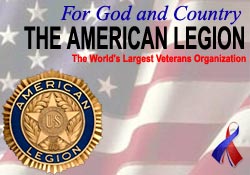-
THOMAS ALVA EDISON (1847-1931;
born in Milan, Ohio)
The greatest inventor of all -- 1,093 U.S. patents
-
JEROME LEMELSON (1923-1996; born
in Staten Island, N.Y.)
The most prolific inventor of our time, with more than 550 U.S.
patents
-
STANLEY MASON (born in 1921 in
Trenton, N.J.; still living)
Inventor of ordinary, everyday products, with more than 55 U.S.
patents; sold his first invention at the age of 7
The above three inventors deserve to be
called "fathers of invention" for the huge impacts their inventions
have had on our lives. Between them, they had a combined 1,700
patents, and counting. We'll profile them over the next three weeks.
First though, we begin with the story
of the person who made it all possible.

There was an inventor born 260 years
ago in Virginia who could be considered the original father of
invention. Without him, many of our nation's greatest inventions
would never have made their way into the public domain.
President Thomas Jefferson invented the
most new products of any president in history, yet he chose not to
file for patents on any of his inventions. Jefferson was not the one
U.S. President to hold a patent -- that would be Abraham Lincoln --
or the one U.S. President to hold a trademark -- that would be
George Washington -- but what he did do was to help establish our
patent system. It was his impact on our patent system that makes him
stand out.
Prior to becoming our nation's first
head of the patent department in 1790, Jefferson opposed the concept
of granting patents, because he considered them to be an unfair
monopoly.

What's so important about having a good
patent system?
Without it, inventors (and companies)
would not have as much incentive to create new products, because
there would be nothing to prevent other people (or companies) from
stealing or copying them. As a result, many of our nation's greatest
inventions would never have been created. No one would want to
invest his own time and money in developing and marketing a new idea
if he knew that his idea could be stolen or easily copied by someone
else. There must be some sort of protection provided to the inventor
in order for him to benefit from his invention, or else there would
be less incentive to invent.
[to top of
second column in this article] |

Jefferson later changed his mind about
the importance of having patents once he saw a number of new
products introduced to the general public as a result of the
protection that a patent provides. He realized that patent laws
INCREASED rather than DECREASED the number of innovations.
Serving as head of the patent office
and as secretary of state at the same time, Jefferson rejected the
majority of patent applications that he reviewed. He also
established that each new invention must meet three criteria in
order to be granted a patent: It must be "new, not obvious and
useful." Without such rules, anybody and everybody who could afford
the patent fee would be applying for patents, thus clogging up the
system and making it harder for worthwhile inventions to be
introduced into society. Jefferson himself tested many of the
inventions that were submitted to him, and his three criteria for
granting a patent have been used in issuing our nation's six million
patents.

What are some of the things that
Thomas Jefferson invented? The list includes a moldboard plow,
wheel cipher, spherical sundial, portable copying press, automatic
double doors, bookstand, swivel chair, dumbwaiter and a macaroni
machine.
In addition, he introduced four food
items to the U.S.: french fries, ice cream, waffles and macaroni.
Jefferson died on July 4, 1826 -- the
same day that John Adams died and exactly 50 years after he signed
the Declaration of Independence.
Next week:
Meet Thomas Edison, the greatest
inventor of all
[Paul
Niemann]
Paul Niemann is a contributing author to
Inventors' Digest magazine, and he also runs
MarketLaunchers.com, helping people in the marketing of their
new product ideas. He can be reached at
niemann7@aol.com.
Last week's
column in LDN:
"Accidental inventions"

|

